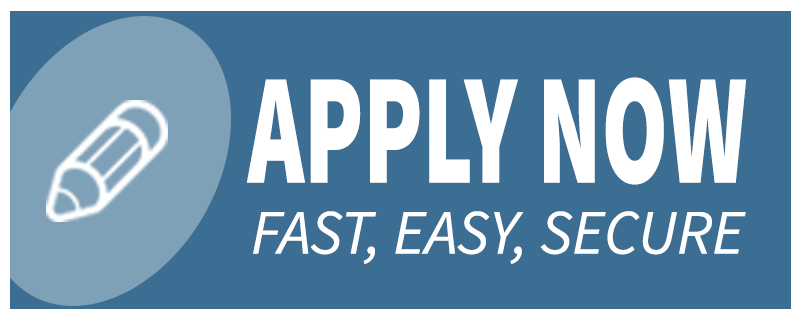8 Reasons Why You Should Purchase Property to Build Wealth
2021-06-05 | 10:46:42

The recent surge in property prices in Canadian cities during COVID has many wondering if we are in a real estate bubble about to burst that will drive prices down. It is hard to know for sure if that is the case or not, but if you are trying to build wealth for the long-term, it makes good sense to purchase a home and/or investment property.
You should have a longer term investment strategy if you plan to purchase propety, as the high costs of land transfer fees, closing costs, real estate commissions, insurance and carrying costs make it difficult to make money on real estate in the short-term. You also need to have a substantial down payment saved, i.e. at minimum 5% down on a property under $500,000, 10% down payment on the amount between $500,000 and $999,999, and 20% down payment on any property over $1 million. You will also incur high ratio mortgage insurance fees if you have less than 20% down on a property under $1 million.
When considering purchasing a property, you should speak with a mortgage advisor and real estate agent to find out how much you can qualify to borrow, and to get a better understanding of what options fit your budget and lifestyle, including property type, geography, maintenance costs, property taxes, mortgage rates and terms, etc.
With this in mind, here are 8 solid reasons you should consider getting into real estate ownership:
1) Building Wealth
If you are currently renting in a large city like Toronto, it is likely you are paying substantial monthly rent that you are not getting any longer term gain from other than your current shelter. If you can use your rent money to pay down a mortgage instead, you will build equity in that property and wealth over time. If you buy as an investment and you can rent out the property, hopefully, you can cover a good portion of the cost with the rent(s) and build equity within your property.
2) Leverage Lenders Money
When you purchase a property you have to save up a down payment of 5 to 20% minimum depending on the purchase price of the property and your ability to borrow. However, the rest of the money to purchase the property is being borrowed and you can leverage the lenders money to grow your own wealth. Over time, as your equity grows, you build up a much larger investment than you started with. In comparison, if you invested in the stock market, you would only be purchasing stock with your savings/down payment.
3) Low Interest Rates
The interest rates for mortgages are at quite low levels, so borrowing is not costing as much. While the rates are good, it makes sense to take advantage of the lenders funds at a lower cost.
4) Tangible Asset That Appreciates
Real estate is a tangible asset that there is a limited supply of in sought out areas. Although there can be some short lived blips in the appreciation of property, generally property in sought out areas appreciates over time.
5) Ability To Increase Value
Owners can maximize the value of their property by making improvements and with good maintenance. Many renovations and improvements add greater value to your property than they cost, increasing the value and your equity in the property.
6) Leverage Your Own Equity
As you pay down the mortgage on your property and/or the property value appreciates over time, you can leverage your own equity to use as down payment to purchase additional properties or to pay for lifestyle needs, such as child’s college fund. If needed, home equity can be leveraged to pay off high interest debt, such as credit cards, and free up your cash flow.
7) Rental Income
Whether you are renting out an apartment in your home, a garage, you have a roommate sharing expenses or you fully rent out an investment property, these are great ways to help you pay off your home more quickly and help cover your costs, while building your home equity.
8) Tax Benefits
If you have an investment property or claim part of your home as an investment, you can write off the mortgage interest and operation expenses against your taxable income. You can also have a non-cash write-off of depreciation against your property (buildings not land) that can also help to lower the taxable income on your investments. Your principal residence, if not rented out, is capital gains free when you sell for a profit, but income made on investment properties or investments will require you to pay both income tax and capital gains tax when sold. You should work with an accountant to ensure you are following guidelines and maximizing your investments.
For those who are new to home ownership or property investing, there are some considerations and sacrifices that come with it. With today’s high prices you may not be able to afford the ideal neighbourhood or type of property that you were hoping for right off. You may very well need to have roommates/renters. However, if you can make some sacrifces early on over the long hau you can end up being in a much superior financial position. If you are wanting to build your wealth, you can consider purchasing a property and renting it out if you can cover the costs for a number of years to build your equity. This works well if you can still live at home with parents or have an inexpensive rent currently. For example, if you purchase a property in a university town, close to the school, you may be able to rent out rooms with shared accommodation to cover the costs. If you hold on to the property for 5 to 10 years, you will potentially increase your equity, and have built up a substantial amount to put down on a higher priced property or take out the equity to purchase another investment property. If you are purchasing a home to live in, but can rent out a separate unit within it, and pay down your mortgage more quickly or increase savings this can help you to upgrade in a number of years. Another option is considering purchasing a property with a sibling or a business partner. You will want to ensure that you have the same goals – i.e. buy and hold for at least 5 years, etc. Partnerships are definitely more complicated, but if you can have an agreement upfront that covers off the variables, such as how long you are committed to the investment, how to deal with unplanned expenses, etc. it can pay off for you over a number of years and give you the ability to get started investing.
Purchasing property is genrally not a short term investment strategy, but it is a solid way to build your wealth over time. For mortgage and refinancing information and advice, give me a call Shelley Middlebrook at 647-997-3866 or email me at shelley@rightpathmortgage.ca





